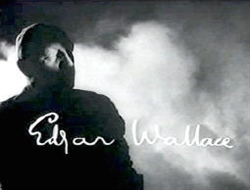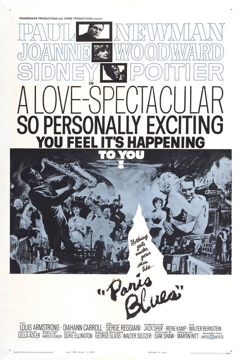A list of American films released in 1961.
Contents

A list of American films released in 1961.

| 1961 Rank | Title | Studio | Gross |
| 1. | The Guns of Navarone* | Columbia | $28,900,000 |
| 2. | West Side Story | United Artists | $19,646,000 |
| 3. | One Hundred and One Dalmatians | Disney | $14,000,000 |
| 4. | El Cid | Allied Artists | $12,000,000 |
| 5. | The Absent-Minded Professor* | Disney | $11,426,000 |
| 6. | The Parent Trap* | Disney | $11,322,000 |
| 7. | La Dolce Vita* | Astor/AIP | $8,000,000 |
| 8. | Lover Come Back | Universal | $7,625,000 |
| 9. | King of Kings | MGM | $6,520,000 |
| 10. | Bayou (film) (Re-released as Poor White Trash)* | CDA/United Artists | $6,000,000 |

Burton Stephen Lancaster was an American actor and film producer. Initially known for playing tough guys with a tender heart, he went on to achieve success with more complex and challenging roles over a 45-year career in films and television series. He was a four-time nominee for the Academy Award for Best Actor, and he also won two BAFTA Awards and one Golden Globe Award for Best Lead Actor. The American Film Institute ranks Lancaster as #19 of the greatest male stars of classic Hollywood cinema.
The year 1964 in television involved some significant events. Below is a list of television-related events which occurred in that year.

Pornographic films (pornos), erotic films, adult films, sex films, 18+ films, or also known as blue movie or blue film, are films that present sexually explicit subject matter in order to arouse, fascinate, or satisfy the viewer. Pornographic films present sexual fantasies and usually include erotically stimulating material such as nudity (softcore) and sexual intercourse (hardcore). A distinction is sometimes made between "erotic" and "pornographic" films on the basis that the latter category contains more explicit sexuality, and focuses more on arousal than storytelling; the distinction is highly subjective.

Sword-and-sandal, also known as peplum, is a subgenre of largely Italian-made historical, mythological, or biblical epics mostly set in the Greco-Roman antiquity or the Middle Ages. These films attempted to emulate the big-budget Hollywood historical epics of the time, such as Samson and Delilah (1949), Quo Vadis (1951), The Robe (1953), The Ten Commandments (1956), Ben-Hur (1959), Spartacus (1960), and Cleopatra (1963). These films dominated the Italian film industry from 1958 to 1965, eventually being replaced in 1965 by spaghetti Western and Eurospy films.
Jacobellis v. Ohio, 378 U.S. 184 (1964), was a United States Supreme Court decision handed down in 1964 involving whether the state of Ohio could, consistent with the First Amendment, ban the showing of the Louis Malle film The Lovers, which the state had deemed obscene.
The Golden Globe Award for Best Foreign Language Film is a Golden Globe Award presented by the Hollywood Foreign Press Association to reward theatrically-released feature film not in the English language.

From the 1950s to the 1980s, during the network era of American television, there were three commercial broadcast television networks – NBC, CBS, ABC – that due to their longevity and ratings success are informally referred to as the "Big Three". The three networks' dominance was interrupted with the launch of Fox in 1986, leading it to join them as one of the expanded "Big Four", while the viewership shares of all the major broadcast networks declined over the following years.

A Raisin in the Sun is a 1961 American drama film directed by Daniel Petrie, and starring Sidney Poitier, Ruby Dee, Claudia McNeil, Diana Sands, Roy Glenn, and Louis Gossett Jr., and based on the 1959 play of the same name by Lorraine Hansberry. It follows a black family that wants a better life away from the city. A Raisin in the Sun was released by Columbia Pictures on May 29, 1961.

The Honeymoon Machine is a 1961 American comedy film directed by Richard Thorpe and starring Steve McQueen, Brigid Bazlen, Jim Hutton, Paula Prentiss, Jack Mullaney and Dean Jagger, based on the 1959 Broadway play The Golden Fleecing by Lorenzo Semple Jr. In the film, three men devise a plan to win at roulette with a United States Navy computer. The scheme works until an admiral ruins their plans.

West Side Story is a 1961 American musical romantic drama film directed by Robert Wise and Jerome Robbins, written by Ernest Lehman, and produced by Wise. The film is an adaptation of the 1957 Broadway musical of the same title, which in turn was inspired by Shakespeare's play Romeo and Juliet. It stars Natalie Wood, Richard Beymer, Russ Tamblyn, Rita Moreno, and George Chakiris, and was photographed by Daniel L. Fapp in Super Panavision 70. The music was composed by Leonard Bernstein, with lyrics by Stephen Sondheim.

Francis Eugene Walter was a Democratic member of the U.S. House of Representatives from Pennsylvania. Walter was a prominent member of the House Un-American Activities Committee from 1951 to 1963, serving as chair of that committee for the last nine of those years. He was a Democrat who wanted to minimize immigration and was largely responsible for the McCarran–Walter Act of 1952, which kept the old quotas but also opened up many new opportunities for legal immigration to the United States.

The Edgar Wallace Mysteries is a British second-feature film series mainly produced at Merton Park Studios for Anglo-Amalgamated. There were 48 films in the series, which were released between 1960 and 1965. The series was screened as The Edgar Wallace Mystery Theatre on television in the United States.

Paris Blues is a 1961 American musical romantic drama film directed by Martin Ritt, starring Sidney Poitier as expatriate jazz saxophonist Eddie Cook, and Paul Newman as trombone-playing Ram Bowen. The two men romance two vacationing American tourists, Connie Lampson and Lillian Corning. The film also deals with American racism of the time contrasted with Paris's open acceptance of black people. The film was based on the 1957 novel of the same name by Harold Flender.
This is a chronological list of films produced in the United Kingdom split by decade. There may be an overlap, particularly between British and American films which are sometimes co-produced; the list should attempt to document films which are either British produced or strongly associated with British culture. Please see the detailed A-Z of films currently covered on Wikipedia at Category:British films.
Harrison's Reports was a New York City–based motion picture trade journal published weekly from 1919 to 1962. The typical issue was four letter-size pages sent to subscribers under a second-class mail permit. Its founder, editor and publisher was P. S. Harrison (1880–1966), who previously had been a reviewer for Motion Picture News, in which his column was titled "Harrison's Exhibitor Reviews".

Freedom Riders is a 2010 American historical documentary film, produced by Firelight Media for the twenty-third season of American Experience on PBS. The film is based in part on the book Freedom Riders: 1961 and the Struggle for Racial Justice by historian Raymond Arsenault. Directed by Stanley Nelson, it marked the 50th anniversary of the first Freedom Ride in May 1961 and first aired on May 16, 2011. It was funded in part by the National Endowment for the Humanities. The film was also featured on The Oprah Winfrey Show program titled, Freedom Riders: 50th Anniversary. Nelson was helped in the making of the documentary by Arsenault and Derek Catsam, an associate professor at the University of Texas of the Permian Basin.